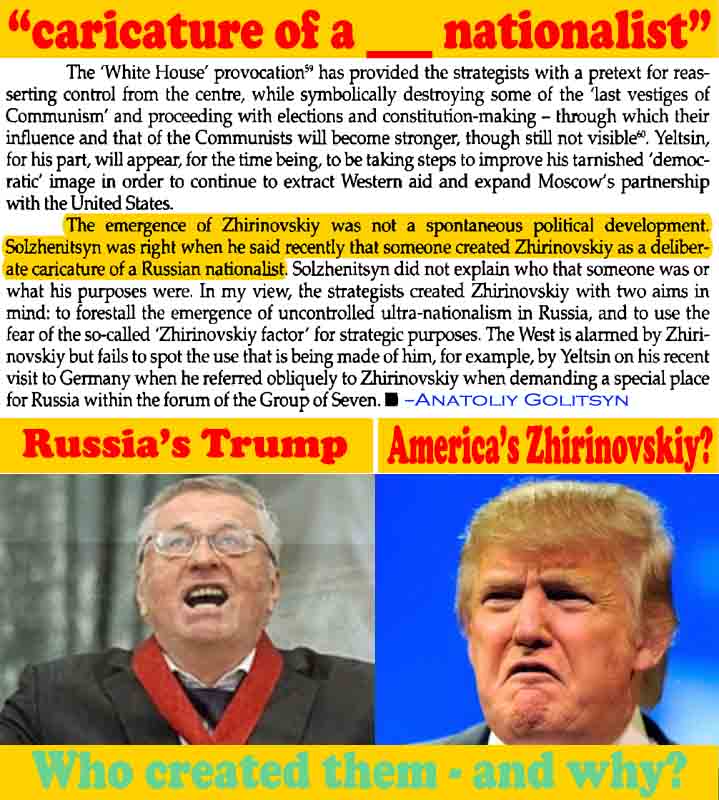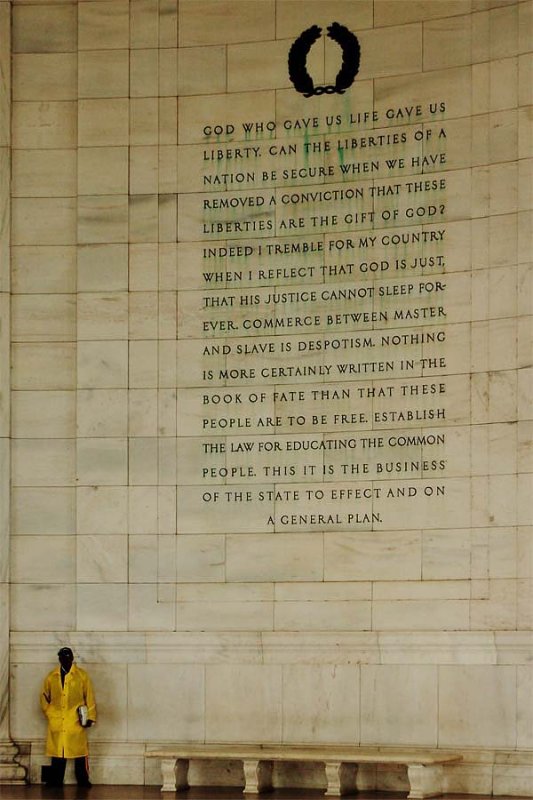politics and politicians
See other politics and politicians Articles
Title: 3 Problems With Libertarianism - After Economics
Source:
afterecon.com
URL Source: http://www.afterecon.com/philosophy ... ics/3-problems-libertarianism/
Published: Sep 10, 2017
Author: Staff
Post Date: 2018-07-18 04:01:54 by Gatlin
Keywords: None
Views: 1129
Comments: 3
Lauren Southern just released a video criticizing modern libertarianism. She’s got some points, but imo they mostly apply to the modern libertarian movement and not libertarianism qua libertarianism as an intellectual thingy. This article points out my three issues with the latter, but I largely agree with her points as well. I argue: 1 – Anarcho-capitalists are too small a share of libertarians What does libertarianism mean to you? It means many things to many people, and there any many points of contradiction. We must take the points of agreement as the necessary substance of libertarianism. Some of the most agreed upon definitions include: Notice that the above definitions involve a minimally-sized state. The problem here is that libertarians do not agree on the minimal size. Why do we need a government at all? The main reason given is to provide for the safety and rights of the people. Yet, this line of thinking is identical to the thoughts of liberals and conservatives of all stripes. Moreover, the set of defensible rights is disagreed on. Moreover, safety can only exist where harm or aggression has a meaningful identify, but the definition of coercion is not agreed on by libertarians. Coercion problems include: The full employment of the free market is called anarcho-capitalism. There are two main approaches to anarcho-capitalism. The approach put forth by Rothbard and the approach put forth by David Friedman. Adherents to either approach constitute a very small segment of libertarianism. I could go on about how Friedman’s version is preferred and Rothbard is full of error, but it’s already a problem for libertarianism that most libertarians reject both. 2 – Anarcho-capitalism alone is improved on through the addition of Christianity An individual can be a positive or normative anarcho-capitalist. The normative grounding for anarcho-capitalism fails: So anarcho-capitalism can defend the claim that the free market leads to the most efficient distribution of resources or the maximum fulfillment of social wants, but it cannot assert this situation as morally preferred. It is not a complete framework. It has no right to call itself a preferred or better state of affairs. Christianity provides a credible moral framework. I’m particularly a fan of divine will theory, but there are other approaches within the faith. Other religions don’t satisfy the task because they are false and a minimal requirement for a credible moral framework is that the framework subsist in true claims. Irreligious worldviews such as atheism and agnosticism generally lack a moral substance. A few exceptions exist including Harris’ moral landscape, but again they fail as non-preferred or non-credible. Harris’ landscape, for example, fails to justify the identification of human flourishing as objectively good in the moral sense. Further, it doesn’t demonstrate itself preferred to Christianity in terms of net expected individual benefit. Few thinkers have pondered compatibility of anarcho-capitalism and Christianity. I’ve yet to find one who considers them compatible, but I think they are. Greg Koukl, for example, sees ‘Christian anarchist’ as a contradiction in terms. He wins a semantic point, but does not deal with the substantive issue. On the free market there exist structures of authority which may be called governments. They use force and exhibit degrees of centrality which may be highly varied and inequitably distributed. Anarcho-capitalism may be relabeled as polycentric governance or a market for law and the substantive point remains. Efficiency may not be morally beneficial on its own, but neither is it clearly bad. It seems morally neutral. Yet efficiency has the ability to multiply the real output of any system. It seems to me, then, that a society which is both Christian and economically efficient will produce more morally beneficial outcomes compared to an equally benevolent but inefficient system. In this way I see efficiency as a moral multiplier, and it becomes clear that a society which can be simultaneously efficient and Christian should be. Finally we have an appropriate and defensible prescription for society. In fact, we can say that a society which is Christian and inefficient is bad, in a moral sense, compared to one which is Christian and good. Yet either is better than a society which is not Christian. The result is that anarcho-capitalism either as a school of thought or as a social order is in any case improved through integration of Christian values. 3 – Anarcho-capitalism + Christianity is better identified with conservatism than libertarianism Anarcho-capitalism is perhaps best identified with so-called libertarian conservatism or right-libertarianism, but it is invalid to claim that this label is somehow closer to pure libertarianism than pure conservatism. If we are forced to ignore the nuances of complex labels and must choose among the simple labels of conservative, liberal, or libertarian, under their American meanings, the best descriptor of a person holding the views I describe would seem to be a conservative. A conservative is socially conservative and fiscally conservative. Social conservatism is identified with Christian values. A libertarian would be a fiscal conservative and a social liberal, while a liberal would be both socially and fiscally liberal. At face value, a Christian anarcho-capitalist fits into the conservative camp. Admittedly, real people do not fit neatly into their theoretical categories. I think the average self-identified conservative, whether a politician or ordinary person, is likely to support a much larger role for the State compared the the average self- identified libertarian. In practice I think I relate to libertarians as a social group better than conservatives. At the same time, I think theoretically rigorous conservatism is preferred to theoretically rigorous libertarianism because it subsumes all the gains from economics and improves upon them with Christianity.
Post Comment Private Reply Ignore Thread
Top • Page Up • Full Thread • Page Down • Bottom/Latest
Begin Trace Mode for Comment # 1.
#1. To: Gatlin (#0)
An oxymoron. Where does this fiscal conservative get the money to fund his socially liberal programs? I see a Libertarian as an extreme fiscal and social conservative. Conservatives will begrudgingly allow some government funding of social programs for the truly needy. Libertarians would never take someone's money and give it to someone else.
#2. To: misterwhite, Gatlin (#1)
(Edited)
Soooo, (D)onaldo, the extremist caricature... is clearly no more Libertarian than "Russia's Trump"...
Jefferson came close. =============== --Aleksandr Solzhenitsyn --Thomas Jefferson
Top • Page Up • Full Thread • Page Down • Bottom/LatestA libertarian would be a fiscal conservative and a social liberal
Replies to Comment # 1. I see a Libertarian as an extreme fiscal and social conservative.

#3. To: misterwhite (#1)
I see a Libertarian as an extreme fiscal and social conservative.
"the great disasters that had befallen Russia: Men have forgotten God; that's why all this has happened."
"CAN THE LIBERTIES OF A NATION BE SECURE WHEN...." 
End Trace Mode for Comment # 1.
[Home] [Headlines] [Latest Articles] [Latest Comments] [Post] [Mail] [Sign-in] [Setup] [Help] [Register]
